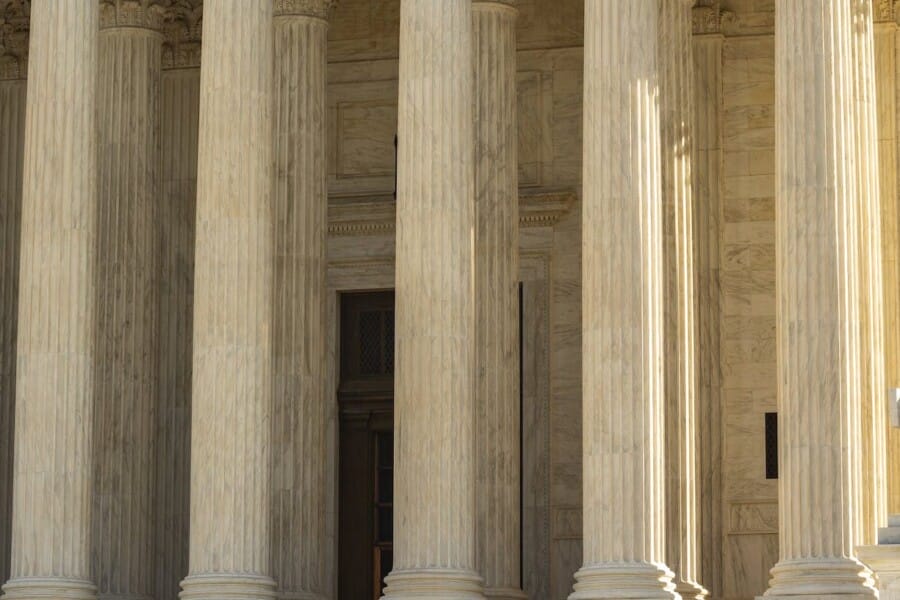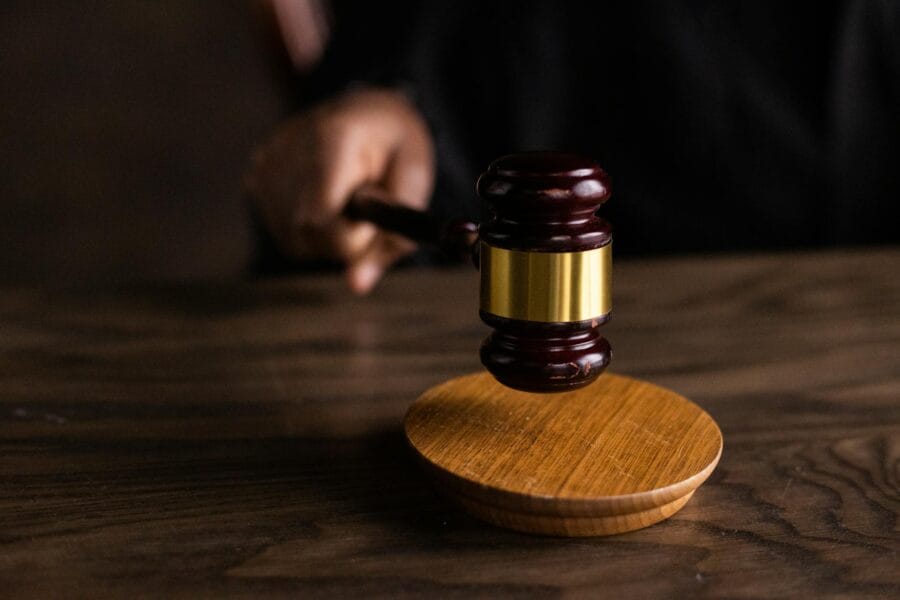President Trump’s nominee for the Supreme Court, Judge Amy Coney Barrett, sailed through a second day of questioning on Wednesday with colors flying. Senate Democrats, who presumably will vote against her nomination in a bloc, focused most of their fire on the man who nominated her and on issues that are mostly extraneous to the confirmation process.
This morning, the final day of the Judiciary Committee hearing (barring anything unforeseen – see below), Judge Barrett will not be in the hearing room. One hopes that she and her family will enjoy some down time together after sitting through nearly a 40-hour work week of hearings over three days. The committee will hold its first markup on the nomination, which will result in her nomination being “held over” to pave the way for a vote out of the Judiciary Committee next Thursday. (Senate Majority Leader Mitch McConnell has promised a floor vote the week of Monday, October 26th.) The committee will then hear from the American Bar Association, which will explain its determination that Judge Barrett is “Well Qualified” for the Court.
Afterward, Judiciary Committee members will have time for briefing closing remarks, which many will use to announce they are voting for or against the nomination. Then, the committee will hear from eight outside witnesses (four supporting her and four opposing). The opposing witnesses will be:
- Dr. Farhan Bhatti, a family physician from Michigan, who will testify about the impact that the Affordable Care Act has had on access to health care;
- Kristen Clarke, head of the liberal Lawyers’ Committee for Civil Rights Under Law;
- Crystal Good, a young woman from West Virginia, who will testify about how she secured access to abortion through a judicial by-pass;
- Stacy Staggs, a lobbyist from North Carolina, will also testify about the ACA’s impact on her family.
The supporting witnesses will include a highly respected former court of appeals judge, a professor friend of Judge Barrett, one of her first clerks, and a former student from Notre Dame.
Judge Thomas Griffith, recently retired from the D.C. Circuit Court of Appeals, will provide his insight into why Judge Barrett is “supremely well-qualified and well-suited to join the other esteemed members of the Court.”
The written testimony of Professor Saikrishna Prakash, a distinguished professor at the University of Virginia School of Law, is well worth reading. Professor Prakash calls the ABA rating of “Well Qualified” something an understatement:
It is a bit like saying that George Washington was “well-qualified” to be our first president. Amy Coney Barrett is uber qualified. You have seen that in ample measure over the past three days. In fact, I would say that Judge Amy Coney Barrett is a five-tool nominee. She’s a brilliant scholar, a terrific educator, an institutionalist, a role model, and to top it all off, an originalist. She is tailor-made for this job.
Ms. Amanda Rauh-Bieri, a young lawyer, will testify on Judge Barrett’s mentorship and support as a role model throughout her career.
Finally, Laura Wolk, the first blind Supreme Court clerk, will testify about Judge Barrett’s strong support for her while she was a student at Notre Dame Law School.
Committee Chairman Lindsey Graham is likely right to observe that “no minds were changed in the process.” “You will be confirmed, God willing,” Senate Judiciary Committee Chairman Lindsey Graham told Barrett. The public seems to be lining up behind Judge Barrett: according to a Morning Consult poll conducted October 9-11, 48 percent of registered voters support Barrett’s confirmation and 31 percent oppose.
Chairman Graham also complimented the Democratic members of the committee for refraining (mostly) from personal attacks on Judge Barrett. (Senator Mazie Hirono of Hawaii did manage to lower the proceeding by asking her whether she had ever sexually harassed anyone.) Regardless of what transpires on Thursday, we should hold our breath before the committee’s final vote. Accusations of harassment against both Justice Clarence Thomas and Justice Brett Kavanaugh commenced after the initial hearings, resulting in a second and much more contentious round in which both nominees were ultimately confirmed, although with their personal reputations forever darkened. The recent documentary on Justice Thomas’s life, “Created Equal,” is essential viewing for anyone wishing to understand the depths to which this process can sink. For the sake of Judge Barrett, and her family, let’s hope and pray that doesn’t happen in her case.



